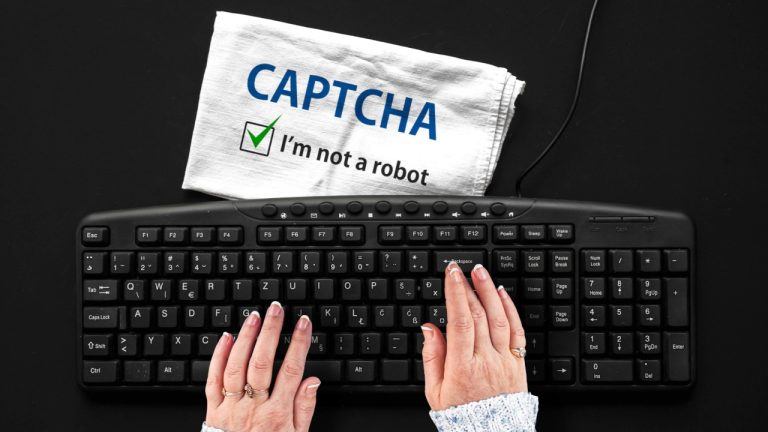President Donald Trump said he didn't know 'anything' about an extraordinary security breach where a magazine editor was inadvertently included on a group chat with his entire security team strategizing about an upcoming military attack.
The stunning revelations came Monday afternoon, after the Atlantic reported on jaw-dropping revelations that editor Jeffrey Goldberg got invited to join a chat on the messaging act Signal that featured internal debates before the U.S. carried out military strikes on Houthi targets in Yemen.
Some of the material was so sensitive that the magazine decided not to publish it, but the article from the group chat did feature Vice President JD Vance raising arguments against the decision to strike the targets. 'Pete Hegseth, the secretary of defense, had texted me the war plan at 11:44 a.m.' – about two hours before it happened on March 15th, wrote Goldberg.
The Signal app is unclassified, although it is often used in the private sector as a form of more secure communications. Usually internal conversations about a looming military operation must be held using secure facilities.
'I don’t know anything about it,' Trump said when asked about it at a White House event with Louisiana Gov. Jeff Landry nearly three hours after the story posted, sending shockwaves through the security establishment.
Then Trump quickly pivoted to attacking the magazine.
'I’m not a big fan of the Atlantic, to me it’s a magazine that is going out of business. I think it's not much of a magazine,' Trump said of the publication, which was founded in 1857.
'I know nothing about it,' said President Trump when asked about bombshell revelations that an editor was actually included on a top level group chat of his security team before a military operation
'I know nothing about it. You’re saying that they had what?' he asked a reporter for guidance on what they were talking about. His questioner informed him that he was asking about the Houthis – the group who has intensified attacks on shipping interest and U.S. vessels amid Israel's war on Hamas in Gaza.
'The Houthis? You mean the attack on the Houthis? Well, it couldn’t have been very effective because the attack was very effective, I can tell you that. I don’t know anything about it. You’re telling me about it for the first time,' Trump said.
Trump had a similar reaction last month when asked about a Time Magazine cover that pictured Elon Musk seated behind the Resolute Desk in the Oval Office.
'Is Time magazine still in business? I didn’t even know that,' Trump said.
The National Security Council confirmed the chat that included Goldberg appeared to be authentic.
The bizarre saga began when Goldberg got a request to connect on Signal from Michael Waltz, the name of the White House national security advisor.
' Pete Hegseth , the secretary of defense, had texted me the war plan at 11:44 a.m.'
The chat was started by Trump National Security Adviser Mike Waltz
Vice President JD Vance (left) and Defense Secretary Pete Hegseth (right) were among the officials in the group chat
The Atlantic editor in chief Jeffrey Goldberg was included in a Trump administration chat on national security issues
Vice President JD Vance weighed in with concerns about the operation
'I accepted the connection request, hoping that this was the actual national security adviser, and that he wanted to chat about Ukraine, or Iran, or some other important matter,' Goldberg wrote.
'Two days later—Thursday—at 4:28 p.m., I received a notice that I was to be included in a Signal chat group. It was called the “Houthi PC small group.”' Some of the most revelatory information came from Trump's Defense Secretary Pete Hegseth, 44, a former Fox News host.
So began Goldberg's inclusion in the ultra high level chat. Some of the contents he would only summarize. What he would say, 'to illustrate the shocking recklessness of this Signal conversation, is that the Hegseth post contained operational details of forthcoming strikes on Yemen, including information about targets, weapons the U.S. would be deploying, and attack sequencing.'
When it was over, according to Goldberg, Waltz called the operation an 'amazing job' and Director fo National Intelligence John Ratcliff caleld it 'a good start.'
It was unclear Monday if there would be any fallout from the disclosure. As a candidate Donald Trump tore into Hillary Clinton for her use of a private email server when she was Secretary of State.
'If true, this story represents one of the most egregious failures of operational security and common sense I have ever seen,' said Sen. Jack Reed (D-R.I.), the top Democrat on the Senate Armed Services Committee.
'Military operations need to be handled with utmost discretion, using approved, secure lines of communication, because American lives are on the line. The carelessness shown by President Trump’s cabinet is stunning and dangerous. I will be seeking answers from the Administration immediately.'

 By Daily Mail (U.S.) | Created at 2025-03-24 21:12:53 | Updated at 2025-03-28 18:22:26
3 days ago
By Daily Mail (U.S.) | Created at 2025-03-24 21:12:53 | Updated at 2025-03-28 18:22:26
3 days ago








